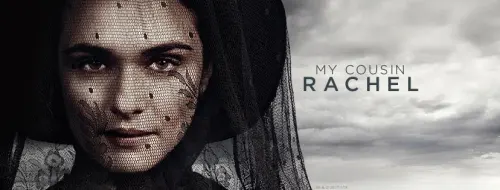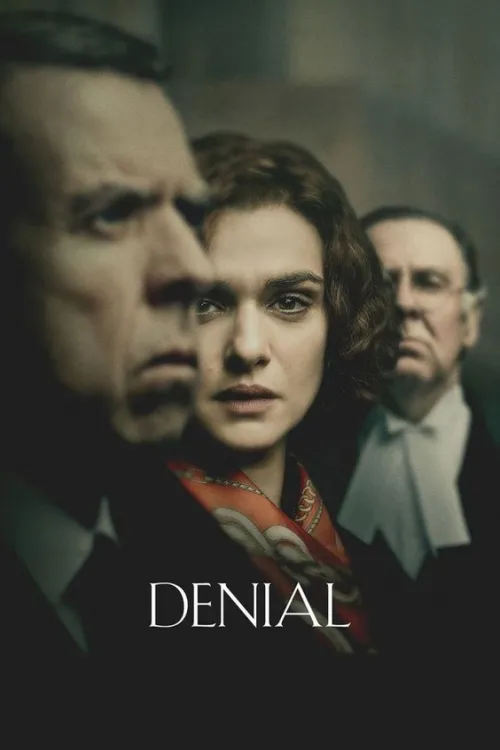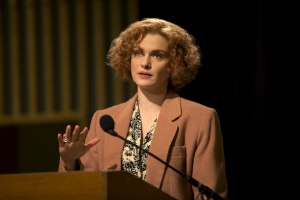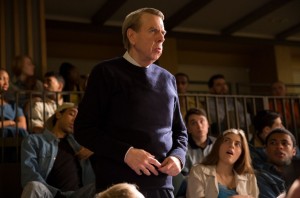Star Rating: 2/5
Director
- Roger Mitchell – Notting Hill, Changing Lanes, Venus, Le Week-End
Cast:
- Sam Claflin – Pirates of the Caribbean IV, Snow White and The Huntsman, The Hunger Games II-III(ii), Me Before You, Journey’s End
- Rachel Weisz – Confidence, The Lovely Bones, The Light Between Oceans, Denial, Disobedience
- Ian Glen – The Diary of Anne Frank, The Iron Lady, Eye In The Sky, Game of Thrones, What About Love
- Holliday Grainger – Waterloo Road, Jane Eyre, The Borgias, Cinderella, Tulip Fever
Music Composer:
- Rael Jones – White Lie, Suite Française, Harlots, Noor
A psychological thriller should play with the viewer’s mind. The audience should not know the past or the motives of the key characters until they are revealed at crucial moments in the film. It is what gave movies like Basic Instinct, Gone Girl and Elle an edge and keeps viewers on their toes. My Cousin Rachel is a psychological thriller, but it is so dull. Why?
The film is based on the 1951 book with the same title by Daphne du Maurier. Philip (Sam Claflin) is raised by his cousin after his parents die when he is young. Now, almost old enough to inherit his cousin’s estate, he learns that his cousin died shortly after marrying a woman called Rachel (Rachel Weisz).
Philip believes that Rachel murdered his cousin and is enraged to find out that she will be coming to live at the estate. However, his feelings soon get complicated as he becomes infatuated with her, all the while wondering if Rachel will do the same to him as she did to his cousin…
My Cousin Rachel is a psychological thriller set in Jane Austin-era England. Nevertheless, its edge is immediately blunted when our central protagonist, Philip, narrates ‘did she or didn’t she,’ before proceeding to tell us the entire backstory of the movie up to the moment when he learns of his cousin’s death. This ruins the film and ignores the first rule of film-making: show, don’t tell. The audience does not need to have the backstory spelled out for them so early on and this information should have been dished out at the appropriate moments during the film. As a result, the audience’s curiosity of how the characters have come to this point, and how they have come to be who they are, is lost.
The terrible opening is just the start, though, as My Cousin Rachel goes downhill from then on. This is irritating because the film has a captivating premise. A man who falls in love with the possible murderer of his father-like figure should make for a compelling watch as the protagonist’s feelings should drive him to madness. Yet, the movie misses this open goal. Instead, it steers off course and becomes a nauseating calamity about a young man desperate for the attentions of an older woman. What on earth made Director Roger Mitchell think that that would make for a good psychological thriller?

Louise (Holliday Grainger) looking on sadly, as if she feels that she is losing her friend, Philip, to Rachel.
In case that were not bad enough, Philip is implausibly stupid and highly immature. He makes illogical and irrational decisions that test the patience (and the sympathy) of the audience. When a viewer starts to feel their patience wearing thin with the central protagonist, one begins to wonder why they should keep watching him and the film, unless the supporting cast make it worthwhile.
Sadly, this is a mixed bag. Ian Glen brings charm and gravitas to My Cousin Rachel with his Ser Jorah Mormont-voice that can melt butter. Glen does his utmost best with the (limited) script and time he has been given, and it is to the movie’s detriment that he is not given more to do. His on-screen daughter, Holliday Grainger, is unremarkable as the female support for Philip. One has sympathy for her character/Louise and this works in Grainger’s favour. However, Louise’s demeanour reminds one of Grainger’s past roles as Lucrezia Borgia and Anastacia in The Borgias and Cinderella, respectively. This taints Louise adversely. The sense that she may have an ulterior motive is never far from the viewer’s mind, especially as My Cousin Rachel is (or at least is supposed to be) a psychological thriller.
Nonetheless, Glen and Grainger are peripheral characters. It is Rachel Weisz as the titular Rachel that one looks out for. And Weisz is unusually poor here. Her chemistry with Claflin is non-existent and Rachel does not come across as manipulative or dangerous. This makes one wonder what her purpose is to the story (other than to be Philip’s fascination). It is not all Weisz’s fault that she comes across badly. The director does not give Rachel the screen-time or the script to demonstrate her true colours. But, still, Weisz looks disinterested throughout, and this negative energy emanates onto the audience who feel the same way about the film.
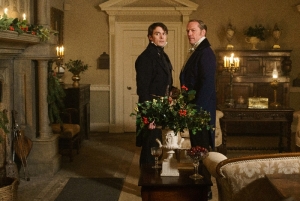
Nick (Ian Glen, left) giving Philip some much needed advice about Rachel, as she may not be who she seems.
My Cousin Rachel, though, is not without its positives. The Cornwall countryside is wondrous to behold and the Victorian, aristocratic mansion that Philip lives in is dark and creepy. These features create a noir atmosphere that is tailor-made for a great psychological thriller. But cinematography alone cannot carry a film, even if it is used to its maximum potential.
Over-all, My Cousin Rachel is a disappointing movie. For a psychological thriller, it lacks the edge that makes films within the genre intriguing and nerve-wracking. The film is not helped by a poor script, key characters lacking in enthusiasm, and a premise that falls short of its promise. Ultimately, My Cousin Rachel is a self-pitying drama instead of a psychological thriller, and that is criminal for the genre.
PG’s Tips

